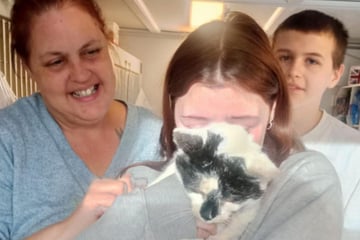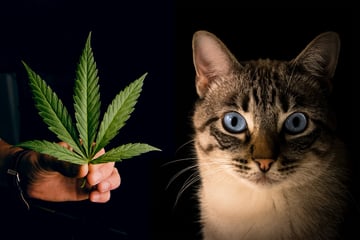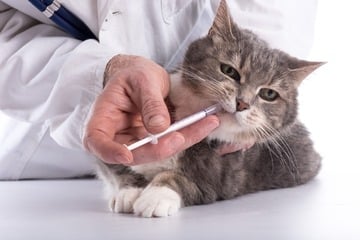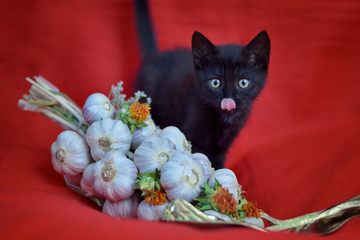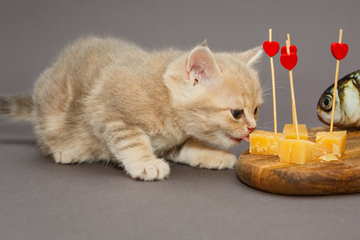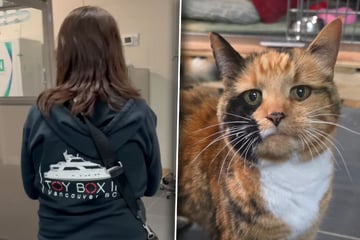How to tell if your cat is happy: Signs of a happy cat
Happy cats are content, well-behaved cats. Yet, many worry that their fluffy friends are less than bright and cheerful. How can you tell if your cat is happy, and what are the signs of a happy cat?
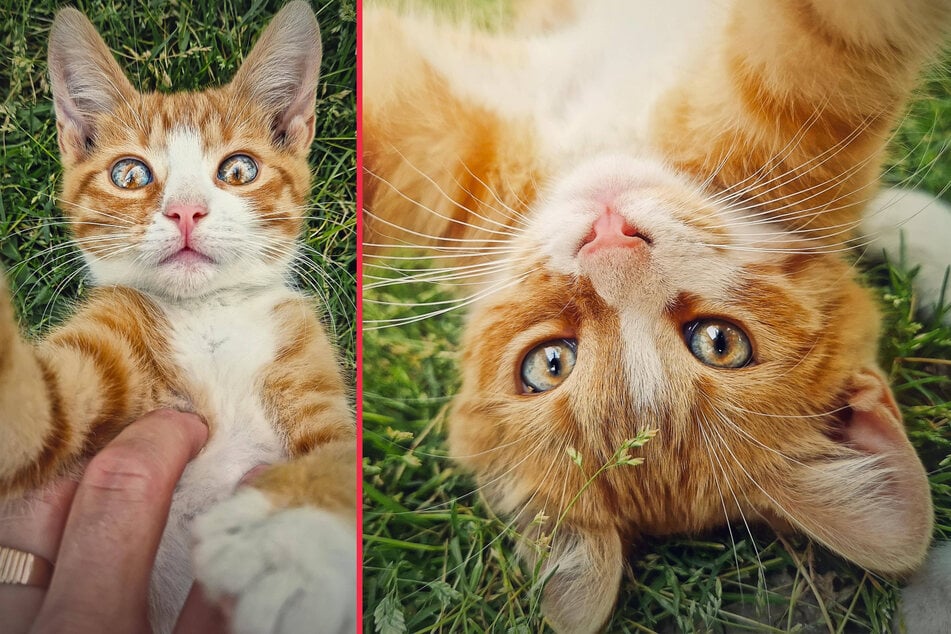
Covered in fluff and full of bright, buzzing life, cats can be the most joyful and wonderful of all pets.
Yet, all too often, people don't even know if their beloved furry fellows are actually living a full and happy life.
It's time to gather the skills required to determine that happiness and establish just how content your beloved kitty is.
If you want your cat to be happy, you need to know how to read its body language and mood. Using this cat guide, you'll find out whether your cat is happy. These are the signs of a happy cat; let's dive in.
Happy cat: How to tell if a cat is happy
A happy cat is a cat that will spend a lot of time with you, will live a long life, and will be endlessly excited to show a little love and eat a little food. While cats can be a bit aloof from time to time, it's not actually that hard to find out if your cat is happy - it's just a matter of being attentive.
Cats display their happiness not in words but in body language. While a clear sign that a cat is happy is the tone of its chirping voice, this is but one of many signs of a happy cat. It's all about cat body language and ensuring that your cat is given everything it needs to be happy.
Yet, no discussion of cats and happiness can go without some kind of warning. Your beloved feline friend might seem happy, or it might seem sad, but if you have no way or no knowledge of how to make things better when they're wrong, there's no point in anything.
When your cat is feeling down and out, and none of your methods have worked to make it feel better, it's time for a vet visit. Keep your cat fully checked up on all things health - this is the number one most important thing to do if you're concerned about its mood.
A vet will be able to tell you if a cat is actually unhappy or whether it's secretly hiding its happiness. On top of that, they can provide diagnoses and treatment for various illnesses, or even for cat anxiety or separation anxiety if that is the culprit.
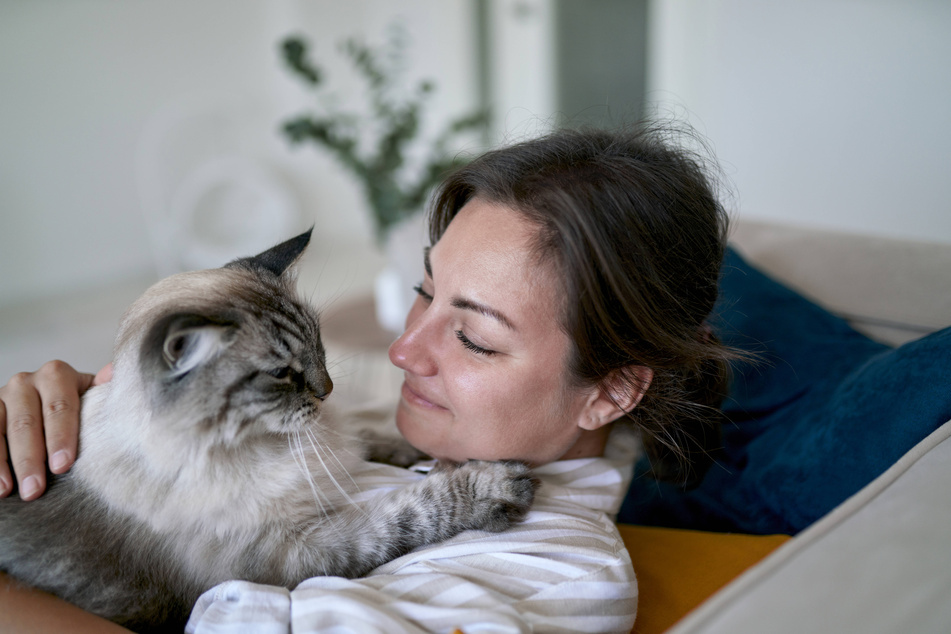
Signs your cat is happy
So, now let's talk symptoms. If your cat is feeling happy, it will let you know in a variety of ways - so you just need to know what to look out for. Paying attention to a cat's behavior and body language is critical to this, as they have no real language to communicate with.
Here are the most obvious signs of a happy cat:
- It'll look healthy and happy: If your cat is happy, you'll be able to tell through its look and its health. Unhappy cats get sick more often and will have a harder life; they'll also look much more disheveled.
- Posture: The positions in which your cat sleeps are a good way to tell how it is feeling. Tight and separated, poised and lean, an anxious cat will have an anxious posture. Meanwhile, a happy cat will be constantly loose and chilled out.
- Eyes: When your cat's eyes are big and wide and take on a friendly tone when it looks at you, it is likely to be happy. If its pupils are dilated, it is a bit more relaxed - if not, it is likely not particularly chilled out.
- Ears: Flicking ears, or ears that are clearly in a constant state of vigilance, indicate a cat that's worried, concerned, and in a state of anxiety. This is a big and clear sign of an unhappy cat, while loose ears are a sign of a happy cat.
- Voice: If your kitty chirps at you and is generally quite talkative, it is likely to be happy. On top of that, a happy cat will purr quite loudly and noticeably in a way that an unhappy cat simply will not.
- Where it sleeps: When a cat chills in the sun, rolls around in the dirt and doesn't seem to have a care in the world where it sleeps and near to whom, it is likely to be quite a cheerful and trusting little dude.
- Playfulness: Happy cats want to play; it really is that simple! If your cat is always wanting to play with you, it is likely to be happy. Keep in mind, though, that as cats get older, they get less playful. As a result, don't assume your older cat is unhappy just because it isn't very playful anymore.
- Appetite: Cats that are feeling happy and contented will eat much more and, more importantly, will be far less nervous and jumpy when they are in the act of eating.
In the end, communication is everything. If you don't pay attention to your cat and do not listen to the signs it is shooting your way, then you will have no hope of knowing when your cat is unhappy or happy. On top of that, your neglect will likely cause the very unhappiness you are trying to avoid.
Pay attention, watch its tail, its paws, and its general attitude. Your cat is an expressive creature and wants you to know how it feels - so use your eyes and ears to give it that recognition.
What makes a happy cat?
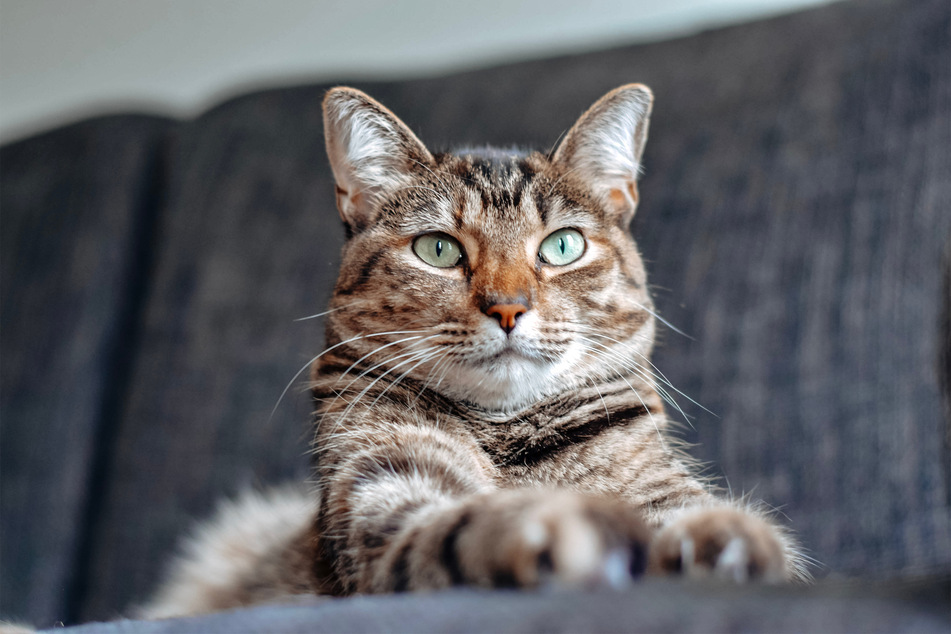
If your cat is not displaying the typical signs of a happy cat, it might be time for you to take a little bit of action and a lot of responsibility. In such a situation, you should take a look at your own behavior and make changes to improve the life of your furry friend. It's a partnership, so work together.
Here's how to make a cat more happy:
- Equipment and toys: Get your cat a quality kitty tree and some good toys to play with. Make sure there are balls to kick, fluffy toys to tear apart, and plenty of climbable material to take away the restlessness that could potentially be causing unhappiness.
- Sleeping arrangements: If your kitty is not feeling very happy, it will sleep away from you and will likely find uncomfortable spots well out of the way and in inconvenient, hard-to-reach locations. Make sure that its chosen sleeping spots are kitted out with things that will start to make it feel more comfortable and safe. Never force your cat to sleep somewhere it doesn't want to.
- Anxiety relief: If you have found out that your kitty suffers from anxiety, the first thing you should do is seek the advice of a veterinarian. Other than that, though, try to find the source of that stress and rectify it if you can - get those renovations done, rearrange whatever is bothering it, etc.
- Pets or alone time: There are two options here. The first is that you provide more pets and really show your love to the cat while demonstrating that you are safe and it is safe. Alternatively, if it is feeling overburdened and overwhelmed, try to leave it alone a little bit more over the coming weeks.
- Grooming: It could be that the source of your cat's unhappiness has something to do with the length of its fur or the state of its claws. Make sure that these things are kept in reasonable condition and that your cat is well-groomed to prevent such a problem.
Many people like to get a cat and then keep it inside a cramped apartment. If you do this, make sure that the cat breed is meant to be inside - otherwise, it will become quite unhappy. It's all about paying attention to these little subtleties and acting upon them.
Watch your cat, read its signs and body language, and take action. It really is that simple - but, of course, if you have any more serious issues or concerns, the veterinarian should always be your first port of call.
Adopted cats and cats kept at home can have happiness issues
While it is always recommended to adopt shelter cats wherever possible, as it provides them with a safe and loving home, they can often have a more difficult time finding happiness and contentedness once they have been adopted. Additionally, cats that suffer from separation anxiety due to being left at home all day also struggle to be happy.
There are many examples similar to the two we just mentioned, and in all of them, a good understanding of your kitty's body language will go a long way. Learn the signs of a happy cat, get them ingrained into your head, and you'll always be able to tell if your cat is happy.
Cover photo: Collage: IMAGO/Imagebroker
